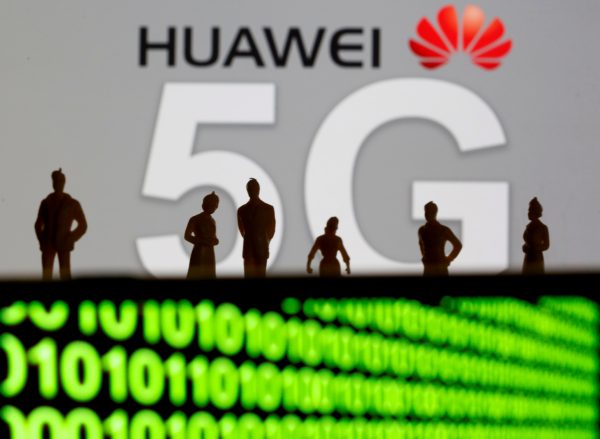Concerns hinge on China’s 2017 National Intelligence Law that mandates private companies with ‘headquarters in China to cooperate with intelligence services’. In addition, the arrest of Huawei executive Wang Weijing for espionage activities in Poland has added fuel to the fire within the European Union.
Despite allegations that Huawei could deploy its network to spy for the Chinese government, many African countries are still seeking to attract investment from the company in their information communication technology (ICT) sectors. Africa’s ICT sector needs massive development and Chinese telecoms vendors such as Huawei and ZTE have ‘built most of Africa’s telecoms infrastructure’, according to a 2017 McKinsey report. Africa’s low internet penetration — standing at 35.2 per cent against the world average of 54.4 per cent — makes the continent a favourable destination for Chinese telecoms infrastructure.
Huawei has already partnered with the Exim Bank of China to invest more than US$1billion in digital infrastructure across several countries in Africa. Huawei Marine is building the Pakistan East Africa Cable Express internet system to link South Asia with East Africa and beyond. The Chinese telecoms vendor is also currently holding trials for a rollout of 5G services with Africa’s largest telecommunication firms MTN, Vodacom and Safaricom. It has already partnered with Rain, a South African network operator, to launch the first commercial 5G network in South Africa and probably the first on the continent.
African governments are less concerned about the security implications of Chinese digital infrastructure, despite allegations that Chinese intelligence has spied on the African Union’s headquarters in Addis Ababa. Suggestions that Huawei’s 5G network could be used for espionage and surveillance weighs lightly on many African countries. The Malawian Minister for Communications and Technology reinforced this attitude at the 2019 Mobile World Congress in Spain, telling media that ‘security is a matter of concern if it has been proven. But for now, we just hear speculations from the United States about Huawei over questions of security’.
Two factors account for Huawei’s continued attractiveness in Africa. First is the economic viability of Huawei’s network — it is considered a cheaper source of ICT infrastructure than those of western companies. Second are bilateral relations between African countries and China gaining momentum over time. China plays a vital role in the economies of many African countries, potentially persuading them to extend such engagement to the ICT sector. But the cavalier attitude of African political actors could open opportunities for sophisticated espionage and surveillance.
China promotes a conception of the internet known as cyber sovereignty, where the state has absolute control over the internet. This approach differs significantly from the West’s conception of the internet as a borderless global community. Chinese President Xi Jinping provided a detailed explanation of cyber sovereignty at the second World Internet Conference in Wuzhen, China in 2015: ‘Sovereignty covers all aspects of state-to-state relations, which also includes cyberspace. We should respect the right of individual countries to independently choose their own path of cyber development and model of cyber-regulation and participate in international cyberspace governance on an equal footing’.
The implications of China’s cyber sovereignty are numerous but the most significant is censorship. This was highlighted by Freedom House’s Freedom on the Net 2018 ranking China as the world’s worst abuser of internet freedom for the fourth consecutive year. The report also emphasises that ‘a cohort of countries is moving toward digital authoritarianism by embracing the Chinese model of extensive censorship and automated surveillance systems’. The development of ICT infrastructure able to enforce cyber sovereignty on the African continent raises a red flag in the long term.
Some experts predict that two versions of the internet — following the US and Chinese conceptions — will emerge in a decade’s time. If this happens, Huawei’s digital infrastructure in Africa will align with the Chinese version. Dire consequences for Africa’s transitional democracies would come in the form of regulation of online freedom of expression and political pluralism. Huawei’s ICT infrastructure may be deployed to advance digital authoritarianism on the African continent.
Huawei’s 5G network will remain vital to Africa’s ICT sector in the short-to-medium term. But in the long-term, it could hold troubling consequences for Africa’s transitional democracies. The rise of a hegemonic Chinese internet may result in the reproduction of digital authoritarianism in Africa. Rather than demonising Huawei, which may not attract support in Africa, the United States and its allies should engage with media, civil society organisations and academics on the continent. Through these diverse engagements, the West can exert pressure on African policymakers to come to terms with the long-term implications of Huawei’s network.
Emeka Umejei is a Visiting Assistant Professor in Communication and Multimedia Design at American University of Nigeria.

